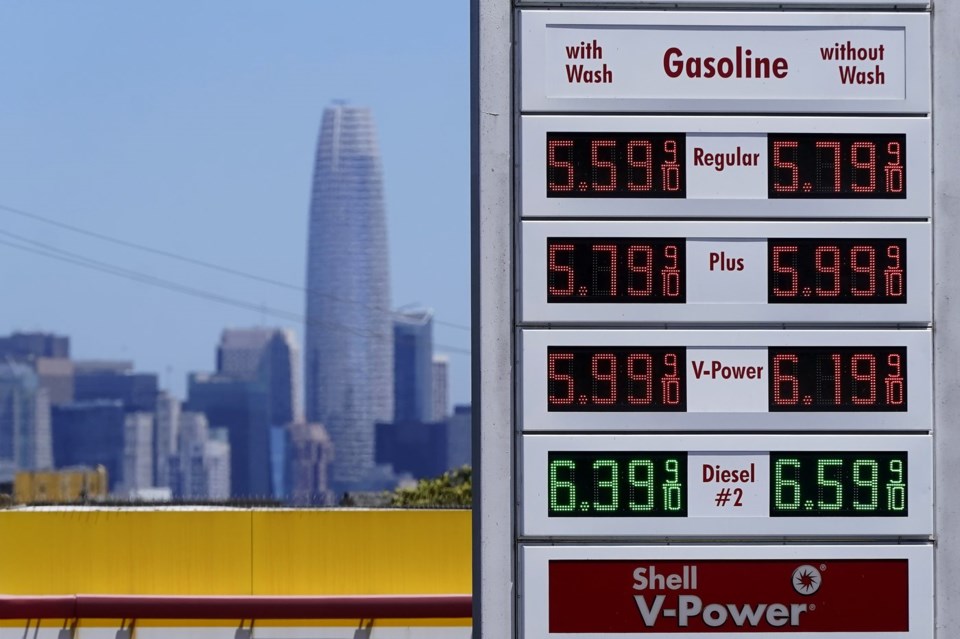SACRAMENTO, Calif. (AP) — California energy regulators Friday put the brakes on plans requiring oil companies to pay a penalty if their profits climb too high, a temporary win for the fossil fuel industry two years after the governor declared the state had “finally beat big oil.”
The postponement by the California Energy Commission until 2030 comes after two oil refineries accounting for roughly 18% of the state's refining capacity announced their plans to close in the coming months. The commission has the power to implement a penalty but has not done so since it was given that authority in 2023.
The penalty was considered a landmark piece of Democratic Gov. Gavin Newsom's government and the state’s ambitious goals to curb climate change. The state faces challenges in its efforts to take on the oil industry while ensuring a stable and affordable fuel supply. His administration is also proposing to temporarily streamline approvals of new oil wells in existing oil fields in an effort to maintain a stable fuel supply.
Siva Gunda, the commission’s vice chair, said the state is not “walking back” its efforts to wean itself off fossil fuels but must prioritize protecting consumers at the gas pump.
“I personally truly believe that this pause will be beneficial to ensure that this mid-transition is smooth,” he said.
The commission still plans to set rules that would require oil refineries to keep a minimum level of fuel on hand to avoid shortages when refineries go offline for maintenance.
Jamie Court, the president of Consumer Watchdog who supported the law, said the energy commission’s vote is “basically a giveaway to the industry.”
“I’m really disheartened and disgusted by Newsom,” he said. “I feel like this is just a total about-face. And in the end it’s going to result in greater price spikes.”
But the Western States Petroleum Association recommended that the state postpone a penalty for 20 years.
“While today’s action by the CEC stopped short of a full statutory repeal or a 20-year pause, it represents a needed step to provide some certainty for California’s fuels market," CEO Catherine Reheis-Boyd said in a statement. “The vote demonstrates the CEC’s understanding that imposing this failed policy would have likely exacerbated investment concerns contributing to California’s recent refinery closures.”
In 2022, Newsom called the Legislature into a special session to pass a law aimed at holding oil companies accountable for making too much money after a summer of record-high gas prices in California. The governor signed a law the following year authorizing the energy commission to penalize oil companies for excessive profits.
Julia Stein, deputy director of a climate institute at UCLA School of Law, said state officials are still intent on advancing their efforts to transition away from fossil fuels.
“But I think there is also a sense at the state level that we’re entering a different phase of the transition where some of these problems are going to be presented more acutely," she said. "And folks are kind of now trying to understand how they’re going to approach that in real time.”
California has the highest gas prices in the nation, largely due to taxes and environmental regulations. Regular unleaded gas prices were $4.59 a gallon Friday, compared to a national average of $3.20, according to AAA.
The commission has not determined what would count as an excessive profit under the policy.
Setting a penalty could be risky for the state because it could unintentionally discourage production and drive prices up, said Severin Borenstein, an economist and public policy professor at the University of California, Berkeley.
“It’s pretty clear they are shifting towards more focus on affordability and recognition that the high prices in California may not be associated with the actual refinery operations,” he said of state officials.
Sophie Austin, The Associated Press



